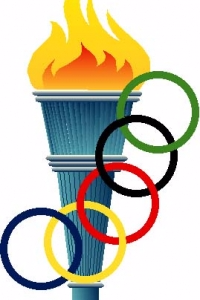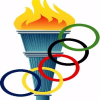
2021 is the year of the Olympics. The 2020 Olympics which could not be held last year because of the Covid pandemics will be played this year from 23rd July to 8th August. As Tokyo approaches it is time to look back at our history at the Olympics and salute those heroes of a bygone era, who strove alone against impossible odds in search of an elusive glory. Olympic success, they say, is an index of a country’s economic prowess. A successful athlete needs years of sustained training under expert coaches, right nutrition, medical care, good infrastructure at home and regular international exposure against the best athletes in the world. Only then will he develop the confidence and self belief to deliver on a world stage such as the Olympics. Developing nations such as India were are not initially in a position to provide this base to their athletes. But this does in no way take away the romance of their participation. The story of blood and guts, the living of a dream, the heartache of being so near yet so far is all of the Olympic legend. This needs to be told.
Our journey begins more than a century back in the Summer Olympics in Paris in the year 1900. Norman Gilbert Pritchard, born of British parents in Calcutta, became the first Indian-born athlete to participate in the Olympic games. Not only that, he won two silver medals in such prestigious events as the 200 meters sprint and the 200 meters hurdles. Controversy rages on whether he competed for Great Britain or India. The International Olympic Committee (IOC) has set the matter at rest and his two medals are credited to India. He thus became the first athlete from India and the first athlete representing an Asian nation to win an Olympic medal. Pritchard, a student of Saint Xavier’s College, Calcutta won the Bengal province 100 yards sprint title for seven consecutive years. His versatility is proved by the fact that he participated in as many as five events in the Paris Olympics and also made the final of the 110 meters hurdles.
India did not participate in the next three Olympics ( 1904, 1908 and 1912 ) and drew a blank in 1920 ( Antwerp ) and 1924 ( Paris ). At Amsterdam in 1928 field hockey returned as an Olympic sport and India sent a team. 9 teams participated in the tournament. In the group stage India won all four of its matches scoring 26 goals and conceding none. In the final they beat Netherlands 3-0 to win gold for the first time. Dhyan Chand scored all three goals in the final and ended up with a tally of 14 goals for the tournament. Thus began an amazing journey for India which was soon to become a subject of folklore. In subsequent Olympics till 1980 India was to win 8 gold, 1 silver and two bronze medals in hockey.
The Los Angeles Olympics of 1932 saw a very truncated field of only three teams for field hockey. A round robin league was played and India duly won gold. We retained our supremacy in Berlin in 1936 beating hosts Germany 8-1 in the final.
After a gap of 12 years (because of the intervening Second World War) the Olympics resumed in 1948 at London. India which had gained its independence in 1947 participated for the first time as a free nation. We continued our supremacy in field hockey with another emphatic 4-0 victory over Great Britain in the final. But London Olympics is more remembered for two supreme efforts. Indian football team, which participated in the Olympics for the first time, lost 1-2 to France after a heroic fight, a kind of result unimaginable today. And it was Henry Rebello who brought home the first of India’s long list of heartbreak stories. In 1948, aged 20, he qualified for the Olympics by winning the national triple jump( hop, skip and jump) title with a record jump of 50 feet 2 inches which was also the best mark in the world that year. This made him a firm favourite to win gold in London. On the morning of 3rd August, 1948 Rebello qualified for the final quite easily. But in the finals held that afternoon, disaster struck the inexperienced Rebello. In a typically cold London afternoon, Rebello did not care to warm up prior to the first of his six attempts and tried to go flat out in his first jump itself. He ruptured his right hamstring muscle and tumbled in the pit. He was carried off in a stretcher. The gold was won by Sweden’s Arne Ahman who jumped 50 feet 6 inches, only 4 inches more than Rebello’s record.
The Helsinki Olympics of 1952 brought good cheer as India retained its Hockey Gold and Khashaba Dadasaheb Jadhav struck bronze in freestyle wrestling (Bantamweight), thus becoming the first individual medal winner in the Olympics for free India. Lack of funds was his bane as he and his family went around their little village of Goleswar begging for contributions. Finally the Principal of his college mortgaged his home for Rs.7,000/- to send him on his way. He had extreme difficulty in adjusting to mat surface of the Olympics but still managed to defeat wrestlers from Mexico, Germany and Canada before losing his semi-final. He came back stronger to win the bronze. On his return to the village he was treated like a hero. It took his victory procession 7 hours to reach the village temple which on another day would take him 15 minutes. He lived the final stages of his life in abject poverty. The significance of his achievement was to sink in only later as the nation had to wait another 44 years before recording the next individual medal.
The Olympics were held in Melbourne in 1956. India played Pakistan for the first time in an Olympic Hockey final. Though we won 1-0, the first serious challenge to our Hockey supremacy had been registered. Indian Football team put up a very spirited show. We beat Australia 4-2 in the Quarterfinal (Neville D’Souza got a hat-trick) , but lost our semifinal and the play off for third place. We thus finished fourth.
And then came the tragedy of the Rome Olympics of 1960. Three significant events happened. First we lost the Hockey Gold to Pakistan losing the final 0-1. This, coming in the wake of our second place finish (Pakistan won the gold) in the Tokyo Asian Games of 1958 was a shock to a nation starved of sporting glory. At football, our team drew 1-1 with France and lost narrowly to Hungary and Peru at the group stage and failed to qualify for the knockout rounds. But little were we to know then that this would be the final appearance of our football team in the Olympics. 61 years have passed since and we have failed to qualify for the Olympics ever again. But the real human story of the Rome Olympics was the saga of Milkha Singh. Milkha Singh was expected to win a medal in the 400 meters. But though he went on improving his timing consistently ( semi final 45.9 seconds and final 45.6 seconds), he was still not good enough. The winner and the second placed athletes both shattered the world record. Milkha came in fourth creating a national record for 400 meters at 45.6 seconds which was to last for the next 44 years.
The first Olympics in Asia were held in Tokyo in 1964. India regained the gold in Hockey beating Pakistan 1-0 in the Final. This victory caused great jubilation in the country. Gurbachan Singh Randhawa, the 1962 Asian Games Decathlon champion, concentrated on the 110 meters hurdles in Tokyo. He qualified for the final as the fastest loser in the semi-final. But once again nature intervened. It rained in Tokyo before the final and the track was drenched. Gurbachan ran his heart out and came 5th in a photo finish, the 3rd, 4th and 5th runners all clocking the same timing. It was another heartbreak story in successive Olympics.
The downhill slide in hockey started from here onwards. In the next two Olympics in 1968 (Mexico) and 1972 (Munich) India could win only the bronze medal in hockey beating West Germany and Netherlands by the identical margin of 2-1 for the bronze medal playoff. Then in the 1976 Olympics in Montreal India as a nation drew a blank and came back empty handed. The only note worthy event was Sriram Singh entering the final in the 800 meters and finishing 7th.
The Moscow Olympics of 1980 was a truncated affair. The Cold War took its toll and the bulk of the western world boycotted these Olympics. Major hockey playing nations were absent and India seized its chance. We beat Spain 4-3 in the final to regain the gold medal. Astro turf made its arrival around this time which was to change the way hockey was played. This was the last and final time India made a podium finish in hockey in the Olympics. 41 long years have passed since and we are yet to make the medal round. Indeed we have never made even the semi final since.
The medal drought continued for the next 16 years. In between 3 Olympics (Los Angeles, Seoul and Barcelona) came and went. A nation as large as ours bungled and stumbled our way through the games. In the midst of this gloom only one bright light shone like the northern star. In the four hundred meters hurdles for women in the 1984 Los Angeles Olympics , P.T.Usha qualified for the semifinal, won the semifinal and was a certain medal prospect in the final. Television had come to India by then. As the nation watched with bated breath, in the final Usha lost the bronze medal by a mere 1/100th of a second. It was a tragedy the nation found difficult to digest. To Usha’s immense credit, only two days later she came back and anchored the 4*400 meters ladies relay team in the final. This is the only occasion when a relay team from India has participated in the final.
By the time the Atlanta Olympics arrived in 1996, India was approaching 50 years of its independence. From 1992 the country had started liberalizing its economy. There was greater connectivity with the world outside and greater exposure for our athletes. Ploughing a lonely furrow in a sport few Indians play, Leander Adrian Paes rose like a man possessed, beating higher ranked opponents one after the other, to challenge the mighty Agassi in tennis in his own terrain in the semi final of the men’s singles. He lost after a spirited fight. In the play off for third place, Paes came back to beat Fernando Meligeni 3-6,6-2,6-4 to claim the bronze. This was India’s first individual medal after 44 long years and marked a turning point in the country’s quest for Olympic glory. India would not look back again but move forward from here onwards.
2000 Olympics in Sydney was to surprise everyone. History was made on many counts when Karnam Malleswari lifted 240 kgs in the 69kg division to register bronze in women’s weightlifting. This was the first medal won by an Indian woman in the Olympics and was also our first ever medal in weightlifting. We went a step better in 2004 in Athens when Major Rajyavardhan Singh Rathore struck silver in men’s double trap shooting. India had finally crossed the bronze age. Anju Bobby George came fifth in Women’s Long Jump giving us a glimpse of the changing times ahead.
Beijing 2008 was to prove the watershed Olympics in India’s sports history. On 11th August, when mothers were getting their children ready for school and the country was settling down to breakfast, Abhinav Bindra hit gold in 10 meter air rifle shooting. The country went into delirium. As the tricolor went up in Beijing and the national anthem was played, the true splendor of the Olympics dawned on the country’s consciousness. The prize giving ceremony was played again and again on TV and a nation hitherto obsessed with cricket realized for the first time what a world stage truly meant. But more was to come. In the middleweight division of boxing Vijender Kumar beat Gongora of Equador in the quarterfinals to enter the medal round. Though he lost to Correa of Cuba in the semi-final he was assured of the bronze. And then in wrestling, Sushil Kumar who had lost in the round of 16 in the 66kg category, won three successive rounds in Repechage to claim a remarkable bronze when least expected. This was India’s first multi medal Olympics after 1952 and set the stage for London.
London 2012 was a multi starrer. Though a gold eluded us, India ended up with 6 medals, 2 silver and 4 bronzes. What was even more remarkable was that the medals came in four different sports. This proved beyond doubt that India had finally arrived at the world stage. The two silvers came from Vijay Kumar in 25 meter rapid fire pistol and Sushil Kumar in 66kg freestyle wrestling. This incidentally was Sushil’s second Olympic medal. The bronze medals came from Saina Nehwal in women’s badminton singles, Mary Kom in women’s Fly weight boxing, Gagan Narang in 10 meter Air rifle shooting and Yogeswar Dutt in 60kg freestyle wrestling. A journey which started in 1900 in Paris finally arrived at a major destination in London in 2012.
The 2016 Olympics in Rio de Janeiro, Brazil however proved to be a setback. Much was expected of the biggest Indian contingent of 117 athletes participating in 15 sports, but our sportsmen faltered. The highly rated shooters and boxers drew a blank. It was two ladies, P.V.Sindhu and Sakshi Malik who kept the national flag flying by winning silver and bronze in badminton and wrestling respectively. While Abhinav Bindra came 4th in 10 meter Air Rifle and Sania Mirza and Rohan Bopanna came tantalizingly close to a medal in Tennis Mixed Doubles, it was Dipa Karmakar, the first Indian woman to have qualified for Artistic Gymnastics, who stole the nations heart by her daredevil Produnova vault fetching her a fourth position.
As we approach Tokyo 2020 (as it is called), we hold our breath with a mixture of hope, anticipation and trepidation. Number of our athletes hold impressive world rankings and should deliver on the world stage of the Olympics. But the lessons of Rio have been learnt the hard way. If they can hold their nerves and perform to their potential, medals should follow. We expect to do very well in shooting, boxing, wrestling, archery and Hockey. With luck, this may be our first Olympics with a double digit medal tally. The nation waits....
About the Author




Comments